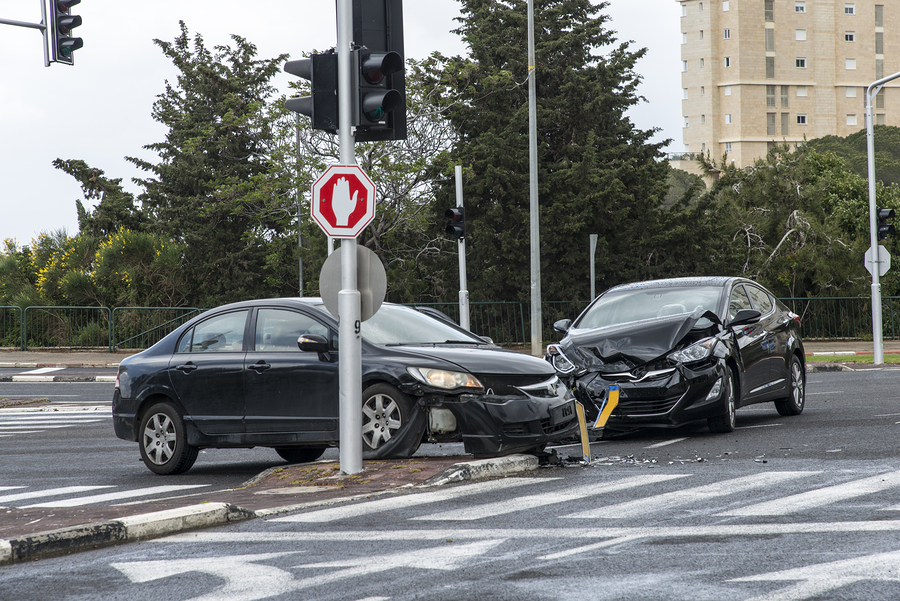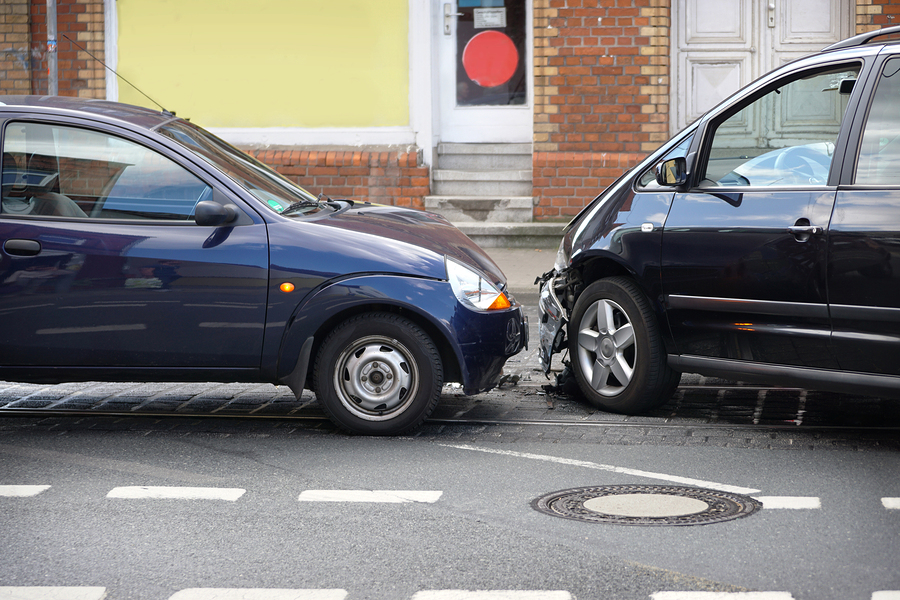Speeding Is the Most Common Cause of Motor Vehicle Accidents in Virginia
Many conditions, events, and driver behaviors can lead to a traffic accident; however, some things lead to collisions more often than others. Speeding is one of those things.
Speeding is the most common cause of fatal collisions across the United States and Virginia. It's also the most common cause of injury collisions in Virginia. If you have recently suffered injuries in a traffic collision, there is a good chance speeding contributed to the accident.
Read below for more information about the prevalence of speeding-related accidents in Virginia, the state's speeding laws, why driver's speed, the dangers of speeding, and what to do if you are the victim of a speeding accident.
How Often Do Speeding-related Accidents and Injuries Occur?
Speeding-related collisions are on the rise across the United States. The National Highway Traffic Safety Administration (NHTSA) reports that, in one year, more than 17 percent of drivers involved in fatal collisions were speeding.
According to data from the Virginia Highway Safety Office, more than 20 percent of the state’s traffic collisions are speed-related, and about 80 percent of them occur on Virginia’s non-interstate roads and highways.
Additionally, speed-related crashes are responsible for:
- More than 45 percent of Virginia’s traffic fatalities
- More than 20 percent of Virginia’s traffic injuries
- Approximately one-third of all severe traffic injuries in the state
Distracted Driving: Speeding Laws in Virginia
Speeding may refer to going over the posted speed limit, or to traveling too fast for the road conditions. Although Virginia is known for its strict speeding laws, its legal code only deals with drivers who travel over the speed limit. Virginia law has two tiers of speeding violations.
The first statute refers to maximum speed limits:
- All interstates, divided highways, and state primary highways have a speed limit of 55 miles per hour unless otherwise posted.
- Trucks, tractor-trailers, tow vehicles, and house trailers must comply with a maximum 45 miles per hour speed limit.
- The absolute maximum posted speed limit is 70 miles per hour on interstates and divided highways and 60 miles per hour on other roads.
Drivers who exceed the above speed limits face fines and points against their driver’s license if they receive a citation. Those who travel over the speed limit excessively may fall into the second tier of speeding violations, which fall under reckless driving. Under Virginia law, reckless driving is a criminal offense that can result in jail time.
Why Drivers Speed and Cause Car Accidents
The NHTSA has identified common risk factors that often correlate with speeding. They include:
Heavy Traffic
Picture this: a driver is stuck in bumper-to-bumper traffic, crawling along at a snail's pace. It's frustrating, right? They've got places to be, things to do, and all they can see ahead is a sea of brake lights. So, when they finally spot a gap in the traffic, it's tempting to put the pedal to the metal and make a break for it. They might find themselves weaving in and out of lanes, trying to get ahead of the pack.
It's not hard to see why some people speed in these situations. They're impatient, they're frustrated, and they just want to get out of that traffic jam as quickly as possible. They might take risks they wouldn't normally take, like cutting off other drivers or zipping through yellow lights.
Plus, when drivers are in their cars, it's easy for them to feel like they're in their own little bubble. They're not face-to-face with other people, so maybe they don't feel as accountable for their actions. It's like the anonymity of being behind the wheel can bring out the worst in some drivers, making them more likely to speed or drive aggressively.
Running Late
We've all been there, right? Running late for work, school, or an important meeting, and the clock is ticking. It's a stressful situation, and some people deal with it by putting the pedal to the metal. They figure, "If I just speed a little bit, I can make up the time and get there on schedule."
The problem is, when drivers are in that panicked, gotta-get-there-now mindset, they might start making some pretty risky choices. Suddenly, the speed limit doesn't seem so important anymore. They're more focused on shaving a few minutes off their arrival time than on driving safely.
The irony is, speeding and aggressive driving are more likely to cause accidents, which can lead to even longer delays. So, in the end, those time-saving techniques might not be so effective after all. It's a vicious cycle, but one that plays out on roads everywhere, every day.
Feeling Anonymous
When drivers are behind the wheel, it's easy for them to feel like they're in their own little world, especially if they have tinted windows. They're cut off from everyone else on the road, and some drivers take advantage of that sense of isolation to speed. They might think, "I'll never see these other drivers again, so who cares if I break the speed limit?" It's like they feel invisible and invincible at the same time.
The problem with this kind of thinking is that it can make drivers less considerate of others on the road. When they're zipping along at high speeds, it's easy for them to forget that their actions could have a serious impact on the people around them. They might not think about the fact that they're putting other drivers, passengers, and pedestrians at risk.
Recklessness
Some drivers are habitual speeders and have complete disregard for the safety of others on the road. They lack concern about whether they break the law or cause a dangerous car accident. This reckless behavior may be influenced by factors such as overconfidence in one's driving abilities, a sense of invincibility, or a general disregard for authority and rules. Reckless drivers may also be more likely to engage in other dangerous behaviors, such as tailgating, weaving through traffic, or driving under the influence of drugs or alcohol.
Why Is Speeding So Dangerous?
Speeding leads to more fatal accidents than any other driving behavior. This is not only true in Virginia but across the United States. Elementary physics explains why. Newton’s Second Law of Motion is that force equals mass times acceleration (F=ma). According to the formula, traffic collisions with the most force involve heavy vehicles and high acceleration.
Speeding Greatly Increases the Force in an Accident
Speeders greatly increase the force in an accident, which tends to cause more severe or fatal injuries. Speeding truck drivers are the most dangerous, as most heavy trucks weigh at least 20 times more than the average passenger vehicle.
The NHTSA warns drivers of other risks of speeding, such as:
- Making it more difficult to control a vehicle, increasing the chance drivers lose control if they come upon a critical or hazardous situation
- Car manufacturers design seat belts, airbags, and other safety equipment based on average speeds and, thus, excess speed reduces the effectiveness of this equipment
- Speeding drivers need more time to stop for stoplights or signs, cars in front of them, and animals or other hazards on the road
- Speeding drivers face the financial consequences of accidents, including medical bills, vehicle damage, and lost income
- Speeding is costly because it requires vehicles to burn more fuel
Steps to Take After Being Hit in a Speed-Related Accident in Virginia
After a crash due to speeding, you might be uncertain about what to do next, especially if another driver caused the accident.
You can immediately protect your health and well-being and your legal rights if you:
Call 911 Immediately
In the aftermath of a speed-related accident, the first and most crucial step is to call 911, provided you are physically able to do so. Contacting emergency services ensures that help is on the way, both in terms of medical assistance and law enforcement.
Your health and safety should always be the top priority following an accident. If you or anyone else involved in the crash requires urgent medical attention, request emergency medical transport to the nearest hospital. Even if you don't believe you've sustained serious injuries, it's essential to have a doctor examine you as soon as possible after the accident.
Some injuries, such as whiplash or internal bleeding, may not present symptoms immediately. These hidden injuries can take hours, days, or even weeks to manifest, and failing to seek prompt medical treatment can exacerbate the damage. Additionally, obtaining a medical evaluation creates a record of your injuries, which can be valuable evidence when pursuing a claim for compensation.
Collect Information Consult a Virginia Car Accident Lawyer
While waiting for the police and emergency medical services to arrive at the scene, there are several steps you can take to gather important information, provided it is safe to do so.
First, try to obtain the contact and insurance information of the speeding driver who caused the accident. This information is crucial for filing an insurance claim or pursuing legal action. If possible, also record the make, model, and license plate number of their vehicle.
If your cell phone is still functional after the accident, use it to take photographs of the damage to your vehicle and the other vehicle involved. These images can serve as valuable evidence when establishing the extent of the damage and the circumstances surrounding the crash.
In addition to vehicle damage, take pictures of any visible injuries you or your passengers have sustained. Documenting these injuries can help support your claim for medical expenses and pain and suffering damages.
Finally, capture photos of any road hazards, skid marks, or other relevant details at the scene that may help demonstrate how the speeding driver's actions contributed to the accident. The more evidence you can gather, the stronger your case will be when seeking compensation.
Consult a Virginia Car Accident Lawyer
If you've been injured in an accident caused by a speeding driver, Virginia law allows you to seek compensation for the damages you've suffered. However, the legal system and dealing with insurance companies can be complex and overwhelming, especially when you're trying to recover from your injuries.
This is where consulting with an experienced Virginia car accident lawyer can make a significant difference. An attorney who specializes in handling speed-related accidents can provide invaluable guidance and support throughout the claims process.
Your car accident attorney will thoroughly investigate the accident, gather evidence, and build a strong case on your behalf. They can help you understand your rights, assess the full extent of your damages, and negotiate with insurance companies to ensure you receive fair compensation for your medical expenses, lost wages, pain and suffering, and other related costs.
Having a skilled legal advocate on your side can alleviate the stress and uncertainty of pursuing a claim on your own, allowing you to focus on your recovery while your attorney handles the legal aspects of your case.


